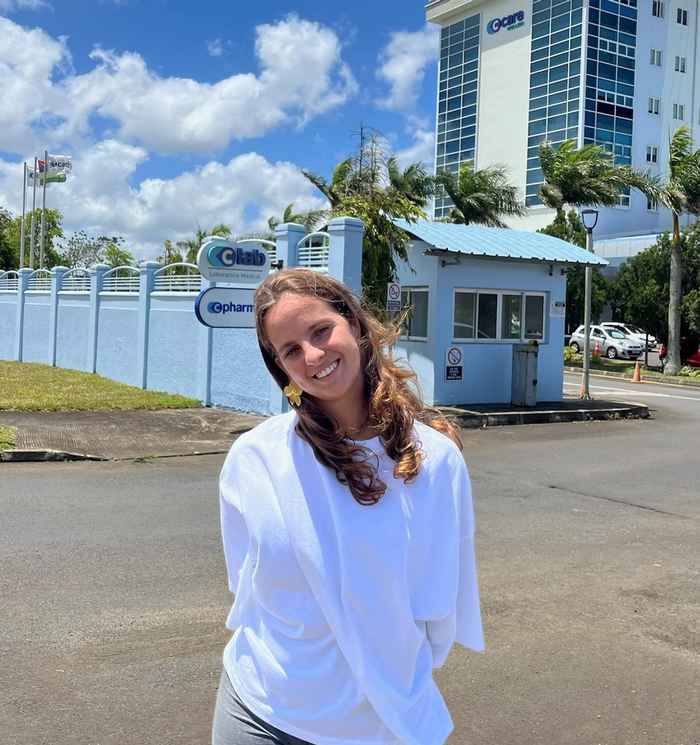“During my internship in Mauritius, I worked on improving mental health, team dynamics, and work culture in a hospital.”
Trijntje

What I did
Many employees work under a lot of pressure, with irregular hours and tough situations, like illness and death. I supported them by leading group conversations where we talked about what they needed to stay healthy and do their job well.
I also helped create a space where staff could go if they experienced inappropriate behaviour. On top of that, I worked on improving the work culture, because some topics were still seen as taboo. Together with coaches, I helped to make teamwork and communication better.
I also made new templates for job ads and built an Excel file to organise job levels more clearly. This helped show who did what and at what level, so the company could grow in line with European standards.
You might think this was just administrative work, but by clarifying job descriptions and roles, people better understood their career paths. This didn’t just give employees more insight into their own growth, it also helped reduce inequality at work. Sociology really teaches you to see the bigger picture.
A sociologist... in a hospital?
Yes, absolutely! You can apply sociology almost anywhere.
During my internship, I saw many examples of group dynamics and cultural differences: things I had learned about during my studies. There was a clear gap between the head office staff, who were mostly highly educated and white, and the hospital workers, like nurses and kitchen staff. This sometimes caused misunderstandings. My sociology background helped me understand these differences and work on closing that gap.
I also used practical skills from my studies. For example, we used surveys to find out what the biggest problems were in the company. I presented those findings to the board.

Making a difference
What I loved most about this internship was that I could really make an impact. I had a lot of freedom to do things myself. My supervisor gave me a lot of space, so I wasn’t seen as “just an intern”, but as someone who really contributed to the organisation.
The internship also helped me grow in confidence. Living on my own in Mauritius for five months was exciting and a bit scary, but I learned so much, also about myself.
What’s next?
After this internship, I know I want to work with people inside organisations. It helped me understand how I can support change and what I want to do in the future. I’m already looking at Master’s programmes in this direction, so I’m excited to see what’s next.

